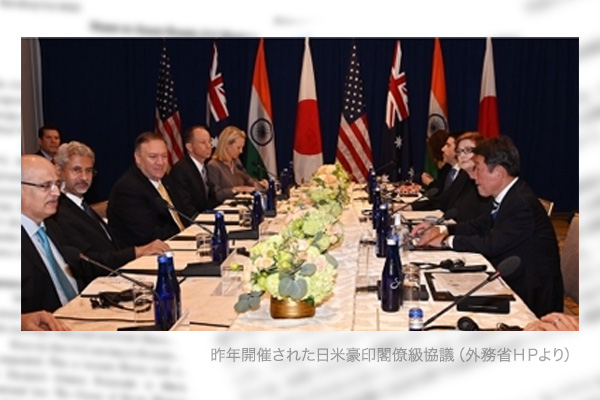Is Chinese President Xi Jinping a national salvation leader or an oppressive dictator? Xi clearly attempted to position himself as the former at China’s National People’s Congress legislature convened on May 22, but the international community has critically viewed him as the latter with the coronavirus pandemic originated from Wuhan, China. Particularly, the Xi regime has angered major Western countries as it turned a blind eye to the fact that it initially covered up the virus outbreak, allowing the disease to spread around the world, and worth still, it made a favor of China’s medical support to other countries instead of apologizing to the world.
The United States has begun to irreversibly decouple supply chains from China. Japan, together with the U.S., has got a strategic opportunity to reconstitute a new Indo-Pacific strategy involving Europe which is remarkably breaking away from China with the current coronavirus crisis.
Xi’s self-admiring speech taken as a black joke
In his speech at the May 18 opening ceremony of the World Health Organization’s first annual assembly since the coronavirus pandemic outbreak, President Xi admired China as having given priority to people and their lives and had “an open, transparent and responsible attitude,” calling for building “a global community of health for all.” The speech deviating far from facts might have been taken as a black joke by countries aware that China has dispersed the virus throughout the world and conducted the so-called “mask diplomacy” providing poor-quality medical supplies.
The Xi speech included no word of apology for allowing the coronavirus infection to expand, while the WHO, though criticized as favoring China, unusually tolerated China to unilaterally admire itself. A resolution calling for an independent investigation about the origin of the coronavirus was unanimously adopted as proposed by Japan, Australia and the European Union. One hundred twenty countries’ support for the resolution might have dealt a severe blow to China. In the future, China may try to delay the investigation process through politics on how to organize an investigation team and may repeatedly request revisions to a report in a bid to water down its content.
China likely to take hardline foreign policy
Severe damage by the Wuhan coronavirus to the Chinese economy has been shown by Beijing’s failure to provide an economic growth outlook at the NPC. President Xi will be likely to adopt hardline foreign policy to tide over domestic anxiety towards the Chinese Communist Party’s centennial anniversary next year and the next quinquennial CCP Congress in 2022. Starting with a measure to exacerbate suppression in Hong Kong, President Xi may increase military pressure on Taiwan and in the South and East China Seas while enhancing domestic oppression. The Xi regime came up with an annual defense spending increase of 6.6% at the NPC close to 7.5% in the previous year.
Japan on the front of deterrence to China is positioned to lead regional security as coordinator for a “Quad-plus” Indo-Pacific cooperation framework, an expanded version of Japan-U.S.-Australia-India quadrilateral cooperation as a core of the Free and Open Indo-Pacific vision. Japan is required to persuade Europe as well as Vietnam, Taiwan and Indonesia to join the Quad countries to build a new framework to deter China.
Hiroshi Yuasa is a Planning Committee member and a senior fellow at the Japan Institute for National Fundamentals. He is a columnist for the Sankei Shimbun newspaper.


